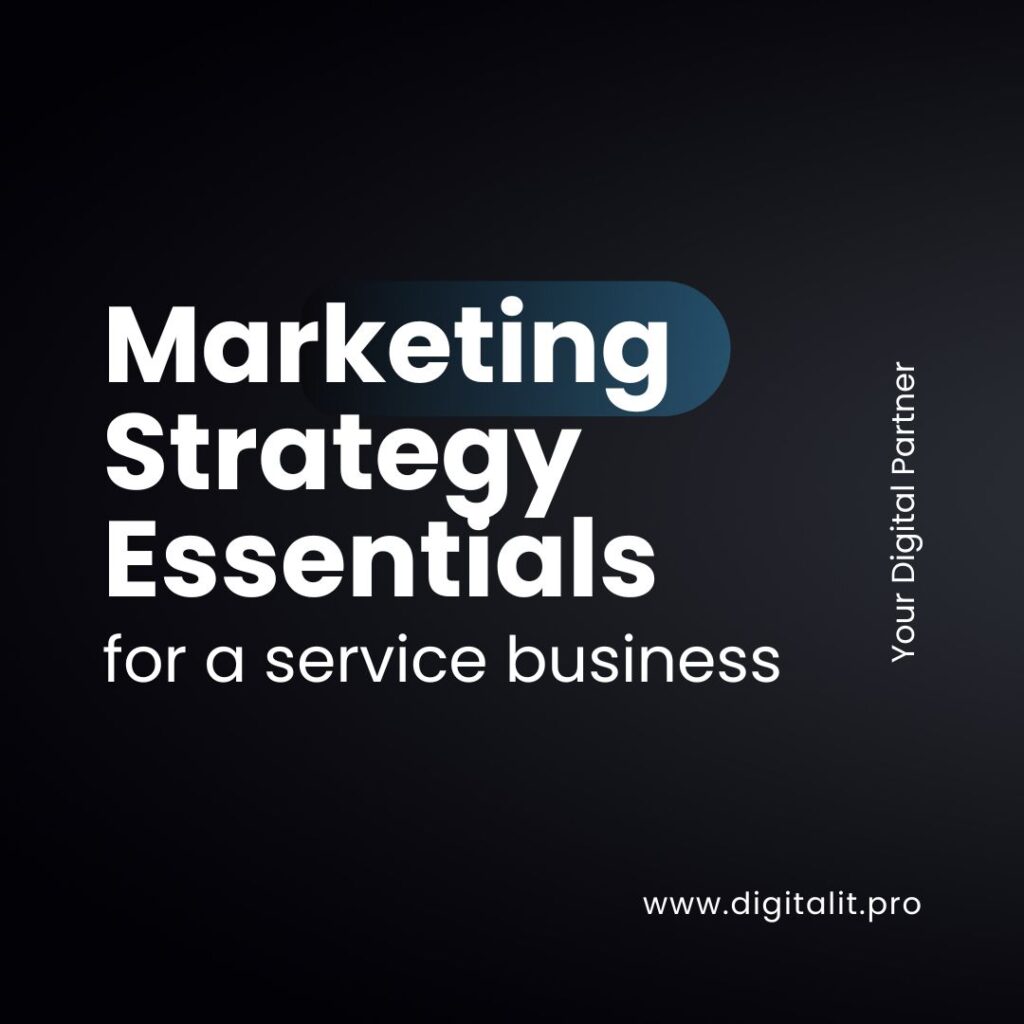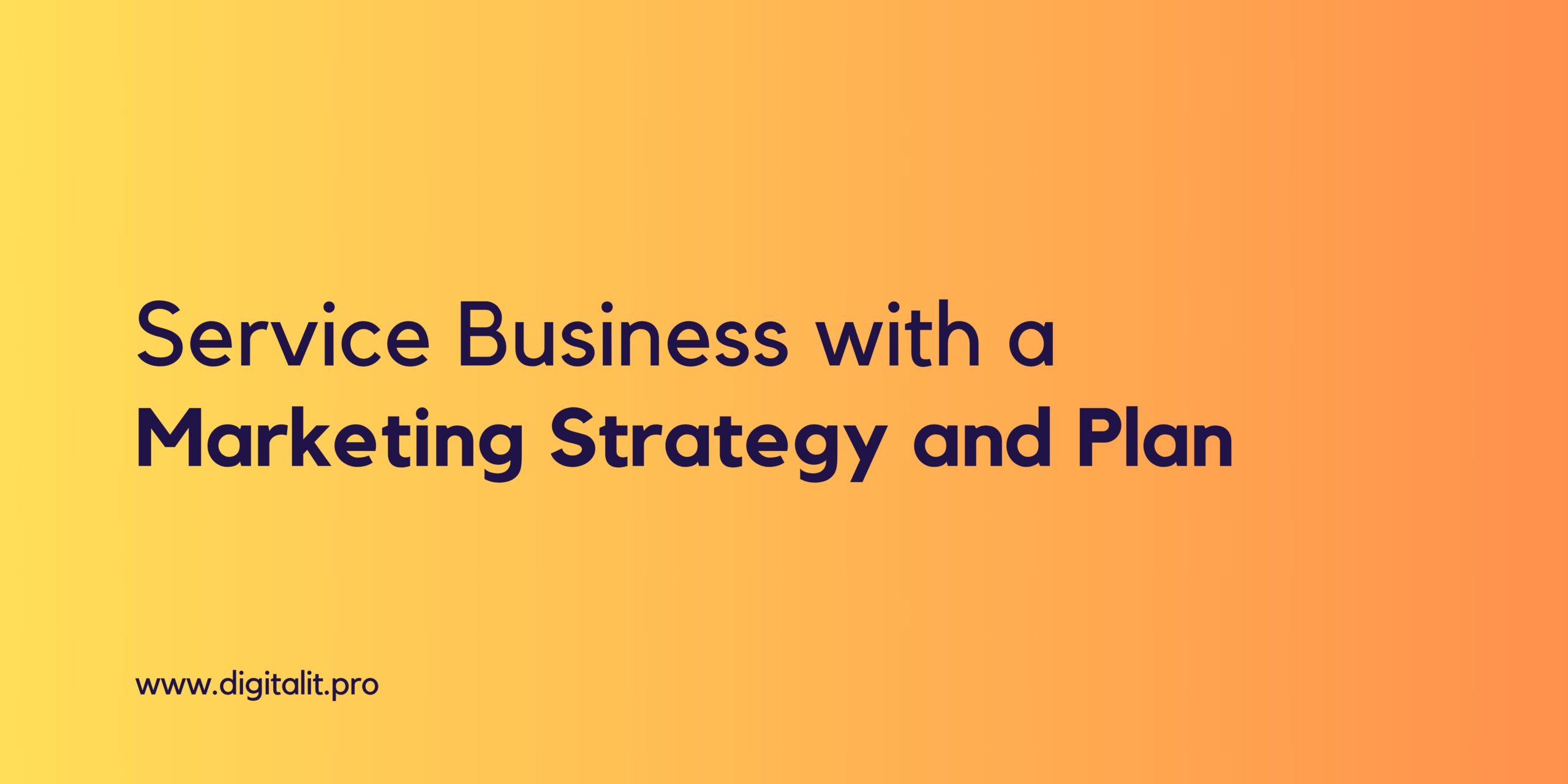
In today’s competitive business landscape, having a well-defined marketing strategy and plan is essential for the success of service-based businesses. Unlike product-oriented companies, service businesses rely heavily on building trust, credibility, and relationships with clients.
Therefore, creating a tailored marketing strategy and plan is crucial for attracting, retaining, and growing your customer base. In this article, we will guide you through the steps to develop a comprehensive marketing strategy and plan for your service business.
Define Your Business Objectives:
Before diving into marketing strategies, it’s vital to understand your service business’s overarching goals. What are you trying to achieve? Are you looking to increase revenue, expand your customer base, or establish your brand as an industry leader? Clearly defined objectives will serve as the foundation upon which your marketing strategy is built.
Understand Your Target Audience:
To effectively market your services, you need to understand your target audience. Who are your ideal clients? What are their needs, preferences, and pain points? Conduct market research, surveys, and competitor analysis to gain insights into your target demographic. This information will help you tailor your marketing efforts to resonate with your audience.
Develop Your Unique Value Proposition (UVP):
Your Unique Value Proposition (UVP) is what sets your service business apart from the competition. It should communicate the unique benefits clients can expect when choosing your services. Consider what makes your business special and how it solves your customers’ problems. A clear and compelling UVP will be the cornerstone of your marketing strategy.
Choose Your Marketing Channels:
Service businesses have a multitude of marketing channels to choose from, including digital, social media, email marketing, content marketing, and more. Select the channels that align with your target audience’s preferences and your UVP. Keep in mind that an integrated approach often works best, as it allows you to reach your audience across multiple touchpoints.
Craft a Content Strategy:
Content marketing plays a crucial role in building credibility and trust in service businesses. Develop a content strategy that includes blog posts, videos, webinars, whitepapers, and other valuable resources that educate and engage your target audience. Consistently produce high-quality content that showcases your expertise and addresses your clients’ pain points.
Build a Strong Online Presence:
In today’s digital age, having a strong online presence is essential. Create a professional website that reflects your brand and provides a user-friendly experience. Optimize your website for search engines (SEO) to ensure it ranks well on search results pages. Utilize social media platforms to connect with your audience and share valuable content.
Implement Lead Generation Strategies:
Generating leads is a critical part of any marketing plan. Implement lead generation strategies such as email marketing campaigns, webinars, gated content, and referral programs. Encourage potential clients to provide their contact information in exchange for valuable resources or information related to your services.
Monitor and Analyze Results:
Regularly monitor the performance of your marketing efforts. Use analytics tools to track website traffic, email open rates, conversion rates, and other relevant metrics. Analyze the data to identify what strategies are working and which need adjustments. Adjust your marketing plan accordingly to optimize results.
Budget and Resources:
Allocate a budget for your marketing initiatives, considering both online and offline marketing activities. Ensure you have the necessary resources, including personnel and tools, to execute your marketing plan effectively.
Adapt and Evolve:
The business landscape is constantly changing, and so should your marketing strategy. Stay updated with industry trends, customer feedback, and emerging technologies. Be prepared to adapt and evolve your marketing plan to stay competitive and meet the evolving needs of your clients.
Conclusion: Developing a marketing strategy and plan for your service business is a dynamic and ongoing process. By defining your objectives, understanding your audience, and consistently delivering value through your marketing efforts, you can establish a strong presence in your industry and achieve long-term success. Remember that building trust and credibility takes time, so be patient and persistent in your marketing endeavors.
About us: Elevate Your Service Business with Expert Digital Marketing – Digitalit – Your Digital Partner


Leave a Reply